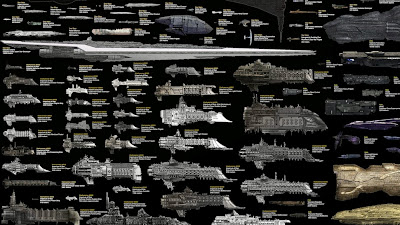The wonder is, he hath endur'd so long.
Easily the most famous king in English literature is Lear: a vain and fatally foolish man who wants to enjoy the benefits of imperial pomps and titles, but doesn't much care for the duties and obligations of actually ruling wisely.
Lear believes he is doing it all for his children, but when it comes time to pass on his legacy and step away from the throne, everything he has built quickly spirals out of control.
His heirs turn on him and on each other.
Eyesight poor and health failing, the half-mad Lear lives long enough the see his legacy in ashes and his ruthless offspring tearing each other apart.
Eventually Lear fless his castle and wanders the wilderness with his Fool.
In the end, nothing that bears his name can escape the disaster her has unleashed and even the most innocent of his children -- the one who had loved her father best and wanted nothing of the chaos he has created -- is sucked in and destroyed by the events Lear has set in motion.
Obviously the analogy breaks down in several places, but it makes for an interesting lens through which to think about "Granite State".
For those of you who do not remember, this is how the king dies.
Lear. Howl, howl, howl, howl! O, you are men of stone.
Had I your tongues and eyes, I'ld use them so
That heaven's vault should crack. She's gone for ever!
I know when one is dead, and when one lives.
She's dead as earth. Lend me a looking glass.
If that her breath will mist or stain the stone,
Why, then she lives.
Earl of Kent. Is this the promis'd end?
Edgar. Or image of that horror?
Duke of Albany. Fall and cease!
Lear. This feather stirs; she lives! If it be so,
It is a chance which does redeem all sorrows
That ever I have felt.
Earl of Kent. O my good master!
Lear. Prithee away!
Edgar. 'Tis noble Kent, your friend.
Lear. A plague upon you, murderers, traitors all!
I might have sav'd her; now she's gone for ever!
Cordelia, Cordelia! stay a little. Ha!
What is't thou say'st, Her voice was ever soft,
Gentle, and low- an excellent thing in woman.
I kill'd the slave that was a-hanging thee.
Captain. 'Tis true, my lords, he did.
Lear. Did I not, fellow?
I have seen the day, with my good biting falchion
I would have made them skip. I am old now,
And these same crosses spoil me. Who are you?
Mine eyes are not o' th' best. I'll tell you straight.
Earl of Kent. If fortune brag of two she lov'd and hated,
One of them we behold.
Lear. This' a dull sight. Are you not Kent?
Earl of Kent. The same-
Your servant Kent. Where is your servant Caius?
Lear. He's a good fellow, I can tell you that.
He'll strike, and quickly too. He's dead and rotten.
Earl of Kent. No, my good lord; I am the very man-
Lear. I'll see that straight.
Earl of Kent. That from your first of difference and decay
Have followed your sad steps.
Lear. You're welcome hither.
Earl of Kent. Nor no man else! All's cheerless, dark, and deadly.
Your eldest daughters have fordone themselves,
And desperately are dead.
Lear. Ay, so I think.
Duke of Albany. He knows not what he says; and vain is it
That we present us to him.
Edgar. Very bootless.
(Enter a Captain.)
Captain. Edmund is dead, my lord.
Duke of Albany. That's but a trifle here.
You lords and noble friends, know our intent.
What comfort to this great decay may come
Shall be applied. For us, we will resign,
During the life of this old Majesty,
To him our absolute power;
[to Edgar and Kent] you to your
rights;
With boot, and such addition as your honours
Have more than merited.- All friends shall taste
The wages of their virtue, and all foes
The cup of their deservings.- O, see, see!
Lear. And my poor fool is hang'd! No, no, no life!
Why should a dog, a horse, a rat, have life,
And thou no breath at all? Thou'lt come no more,
Never, never, never, never, never!
Pray you undo this button. Thank you, sir.
Do you see this? Look on her! look! her lips!
Look there, look there! He dies.
Edgar. He faints! My lord, my lord!
Earl of Kent. Break, heart; I prithee break!
Edgar. Look up, my lord.
Earl of Kent. Vex not his ghost. O, let him pass! He hates him
That would upon the rack of this tough world
Stretch him out longer.
Edgar. He is gone indeed.
Earl of Kent. The wonder is, he hath endur'd so long.
He but usurp'd his life.
Duke of Albany. Bear them from hence. Our present business
Is general woe.
[To Kent and Edgar] Friends of my soul, you
twain
Rule in this realm, and the gor'd state sustain.
Earl of Kent. I have a journey, sir, shortly to go.
My master calls me; I must not say no.
...




















